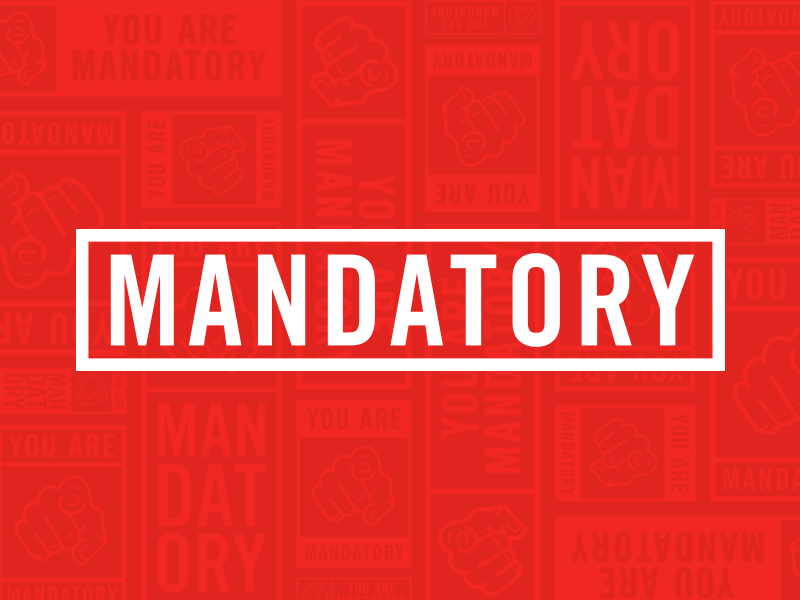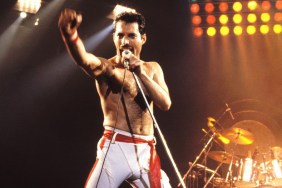10. “Sweet Georgia Brown” – Ben Bernie (1925)
Who knew that the hijinks originally associated with this song had nothing to do with the Harlem Globetrotters? Adopted in instrumental form — complete with whistles and bone cracking — as their theme in 1952, “Sweet Georgia Brown” was written with lyrics about 30 years earlier and centered around the eponymous black streetwalker with a stellar reputation. And though the tune has been popularized by the exhibition basketball team, the lyrical version has been covered by the likes of Ethel Waters, The Beatles and the Grateful Dead.
9. “Just a Gigolo” – Bing Crosby (1931)
Though we’ve grown accustomed to David Lee Roth’s uptempo version, this classic goes all the way back to 1931 when it was made famous by Bing Crosby, America’s first pop star. Taken from an even earlier German tango, his slow, sad ballad told the tale of a young French war hero who has fallen on hard times and can only find a living as an escort. Many artists besides Diamond Dave have covered this song over its long history and it has been heard in various onscreen incarnations as well, from a 1930s Betty Boop short to the closing credits of a “Mad Men” episode.
8. “Hot Child in the City” – Nick Gilder (1978)
We’re not sure what is most surprising about “Hot Child in the City” — that the subject matter of the ultra poppy tune is about underage prostitutes or that its high-pitched singer is really a man. Whatever the answer, this song boasts a combination of all the groove of the ’70s with the bright melody of the ’80s that were on the horizon. Settling into Los Angeles from a life in Canada, Gilder was shocked by all the 15- and 16-year-old girls he witnessed working the corners of Hollywood Boulevard. Narrating from the point of view of a pederast admirer, he transformed this shock into a catchy radio-friendly anthem.
7. “Lady Marmalade” – LaBelle (1974)
Its chorus “Voulez-vous coucher avec moi ce soir” means “Do you want to sleep with me tonight?” It pretty much gets straight to the point and was the reason “Lady Marmalade” drove censors crazy. The story surrounds a New Orleans hooker who does the same thing to her satisfied clients. Patti LaBelle admits the subject matter was completely taboo when she recorded the song, but when questioned on the matter of “[W]hy sing about a hooker?” she immediately answered, “Why not?”
6. “Call Me” – Blondie (1980)
Stevie Nicks declined to co-write the theme song to Richard Gere’s “American Gigolo” due to a contractual conflict, so Deborah Harry was brought on board instead. There’s not much narrative to the song, with the title essentially repeated over and over and over again throughout, but Blondie gave it a groundbreaking New Wave edge at the dawn of the ’80s. It became a long-lasting chart topper and her band’s biggest hit.
5. “Bad Girls” – Donna Summer (1979)
The gritty streets of Los Angeles also inspired another song on our list. This time, Sunset Boulevard –not just an avenue of celebrities and palm trees for those who’ve never paid the city a visit. Working for a record company, Summer sent her African-American assistant on an errand, and when she returned she complained that a police officer mistook her for a prostitute and harassed her. Though the incident provoked anger in the future Queen of Disco, it also sparked the idea for “Bad Girls.” The result — a brassy ode to the world’s oldest profession, complete with bleating car horns and loose women willing to party for loose change.
4. “Killer Queen” – Queen (1974)
While some prostitutes walk the mean streets, others are high class, pampered and proper. We meet such an example in “Killer Queen.” A departure from Queen’s earlier hard-driving rock, it led Freddie Mercury and company to become reigning radio kings. Harmonies, a striking guitar solo and even a bell combine to illustrate our heroine as a fictional female with truly refined appointments. “I’m trying to say that classy people can be whores as well,” Mercury once explained. Aren’t we all lucky for that?
3. “Honky Tonk Women” – The Rolling Stones (1969)
Often introduced at live shows by Mick Jagger as “a song for all the whores in the audience,” “Honky Tonk Women” is another example of a spare musical narrative, yet is among the band’s indisputable favorites. From the start, we meet a working girl dancing in a bar, and what follows is enough innuendo to get the song banned from the set list when The Stones performed in China. As it turns out, wherever it’s played, the song creates a fever whose only prescription is its iconic cowbell.
2. “Walk On The Wild Side” – Lou Reed (1972)
Five characters inhabit this enchanting song released in the early ’70s, a time when tales of cross-dressers, drug dealers, prostitutes and hustlers were not commonly heard on the radio. All hailing from New York City this time, their ranks didn’t just inhabit boulevards like in Los Angeles, but the entire span of the city. And while the call girl and boy creations found in the other songs on this list are mostly fictional, here they are real, and infamous. All “superstars” from Andy Warhol’s storied Factory crowd, you can find them immortalized in the trailblazing artist’s controversial films, as well.
1. “Roxanne” – The Police (1978)
Our list has taken us all over the world — Los Angeles, New York, parts in between and beyond — and we have resettled in Paris for our last entry. As the story goes, The Police were staying in a seedy hotel near the city’s red-light district and Sting imagined what it would be like to fall in love with one of the many streetwalkers he observed there. An old poster for the play “Cyrano de Bergerac” gave her a name and the song its title. Rhythmically a tango — much different than the band’s usual sound — the song stood out and has gone on to become perhaps their most iconic. And here, it easily tops the very best songs about prostitutes.









